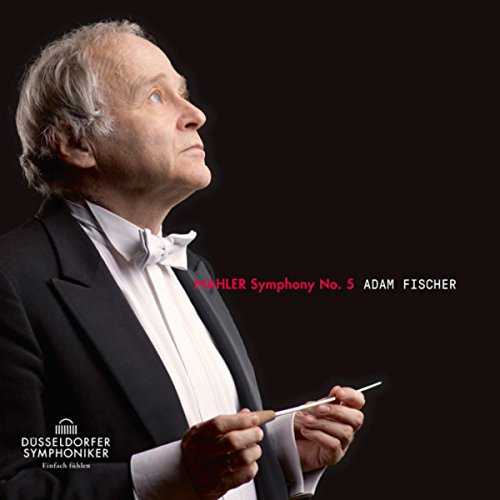
Composer: Gustav Mahler
Orchestra: Düsseldorfer Symphoniker
Conductor: Adam Fischer
Audio CD
Number of Discs: 1
Format: FLAC (tracks)
Label: Avi Music
Size: 657 MB
Recovery: +3%
Scan: yes
Mahler: Symphony No. 5
01. I. Trauermarsch. In gemessenem Schritt. Streng. Wie ein Kondukt
02. II. Stürmisch bewegt. Mit größter Vehemenz
03. III. Scherzo (Kräftig, nicht zu schnell)
04. IV. Adagietto (Sehr langsam)
05. V. Rondo. Finale (Allegro)
The fourth release in the critically acclaimed Mahler Symphony cycle by Adam Fischer and the Düsseldorfer Symphoniker.
“Unlike certain other Mahler symphonies, I have no personal story I associate with the Fifth. This doesn’t imply that it is not just as close to me as the other ones; it is just more difficult to express the connection in words. In 1905, Mahler recorded his own interpretation of this symphony’s first movement on a Welte-Mignon piano roll. We should try to grasp Mahler’s intentions, but we should not apply them without using our own discretion. The Welte-Mignon recording is an important document to help us learn how to deal with Mahler’s tempo indications. There are those well-known indications of the length of his own orchestral performances: they show, for instance, that the Adagietto, in particular, should be played much more rapidly than we think. Incredibly fast runtimes were clocked in Saint Petersburg and also at the Concertgebouw: when we compare them with the movement runtimes as performed by famous conductors of the 1950s and 1960s, we can tell that “slow”, for Mahler, does not mean “dragging”. Most of all – this is my fundamental conviction, and here I find it confirmed – slow and fast aren’t just metronome values. You can play faster while sounding slower, and vice-versa. It does not just have to do with maintaining a slow tempo, but with managing the accents so that it also sounds slower. Sounding slower is more important than merely being slower. You can hear this in the Welte-Mignon recording: Mahler treats his own music in a thoroughly rhapsodic way.” Adam Fischer